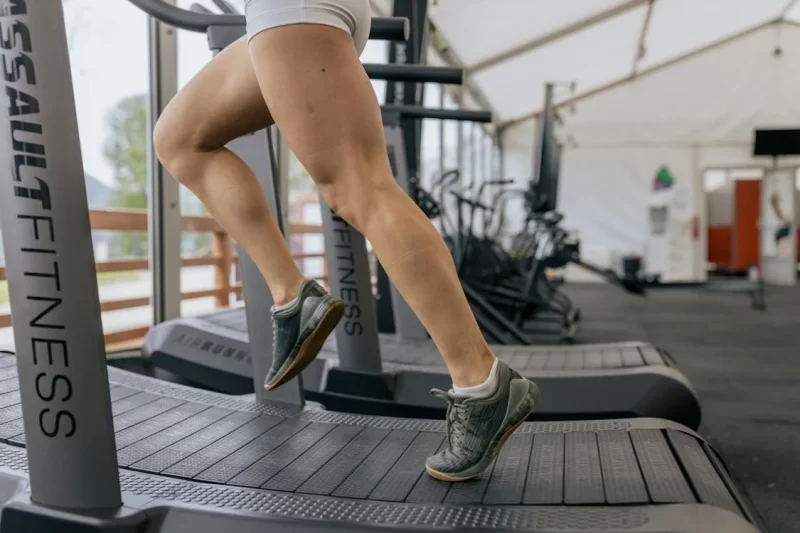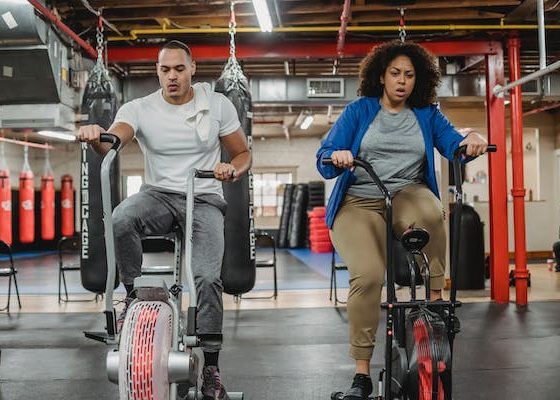Running transcends mere physical activity; it’s a mental and emotional journey. The elusive “runner’s high” is the almost mystical sensation many experience—a rush of endorphins and other feel-good chemicals flooding the brain. It’s an exhilarating state that creates a euphoria, often described as a surge of happiness and well-being.
The Chemistry of the Runner’s High:
The science behind this phenomenon is fascinating. When you run, your body releases endorphins, dopamine, and endocannabinoids. These neurotransmitters are known for their role in pain reduction, pleasure, and well-being. The combination creates a symphony of chemicals contributing to the famous “high.”
A Brief Historical Jog
Running has deep historical roots, dating back to ancient civilizations where it was a necessity for survival. Over time, it evolved from a means of hunting and transportation to a recreational and competitive activity. It’s intriguing to trace how what was once a crucial survival skill has become a widely practiced sport and fitness activity across the globe.
Physical Health Benefits of Running:
Running Fortifies Cardiovascular System
The heart, our body’s engine, experiences significant benefits from regular running. The sustained cardiovascular activity strengthens the heart muscle, enabling it to pump blood more efficiently. This, in turn, enhances overall circulation, reducing the risk of heart disease and stroke.
Running serves as an effective method for conditioning the cardiovascular system. It’s a highly aerobic activity that taps into fatty acids and carbohydrates for energy. Typically, runners exhibit a low resting pulse rate and a high maximal oxygen consumption. Studies using echocardiography reveal that distance runners possess larger, thicker left ventricles than sedentary individuals, indicative of enhanced cardiac efficiency. Despite these benefits, the physiological characteristics of well-trained runners may sometimes mimic pathological conditions. What was once deemed “athlete’s heart,” considered abnormal, is now acknowledged as a sign of a highly efficient organ.
Engaging in moderate-paced running for as little as 50 minutes per week can significantly reduce the risk of heart disease. Running helps build muscle, enhances heart health, and improves overall brain well-being.
Running Masters Muscles
Running isn’t just about the legs. It engages multiple muscle groups, contributing to a full-body workout. The repetitive motion strengthens the legs, core, and upper body muscles. Over time, this leads to improved muscle tone and endurance.
Running, commonly perceived as a lower-body activity due to its reliance on leg strength for propulsion and support, offers comprehensive benefits beyond the lower extremities. While it undeniably strengthens leg muscles, it also qualifies as a total-body workout, engaging the core and upper body muscles during running, thus providing holistic muscle development.
The human body comprises over 600 muscles, encompassing small muscles like those regulating eye movement or lining blood vessels and the digestive tract. When discussing the muscles involved in running, we focus on skeletal muscles, which facilitate body movement by attaching to bones. While running engages numerous major muscle groups, key muscles predominantly involved include the glutes, quadriceps, hip flexors, hamstrings, core muscles, and calves. This highlights the comprehensive muscular engagement required during running activities.
Running Manages Weight
One of the most appealing aspects of running is that it burns calories efficiently. The body taps into its fat reserves through sustained running to produce energy. This not only aids in weight control but also increases metabolic rate, contributing to a more efficient calorie-burning machine.
Running is effective for burning belly fat and shedding weight, as it stimulates calorie expenditure even after your workout ends. Additionally, it aids in curbing cravings and contributes to overall health and well-being.
Losing weight involves maintaining a calorie deficit, where you burn more calories than you consume, and exercise is essential for attaining this objective. Running is an excellent choice due to its high-calorie-burning nature compared to other forms of exercise. Notably, high-intensity interval training (HIIT) routines incorporating running are especially effective, as they engage multiple muscles simultaneously, maximizing calorie expenditure per minute through intense bursts of effort.

Running Strengthens Bones
Contrary to a common misconception, running wears down bones and strengthens them. The force exerted on bones by the body’s weight during running prompts a reaction that boosts bone density, protecting against conditions such as osteoporosis. Running stimulates beneficial bone metabolic activity, accumulating bone-building hormones and enzymes like Calcitonin, Parathyroid Hormone, and Vitamin D. As a result, runners experience enhanced calcium absorption in their bones, increasing bone density over time.
Optimizing bone density as we age is crucial, and running offers powerful benefits. While walking is recommended for bone density, runners often show higher levels. Running stimulates bone-building hormones and enzymes, increasing calcium uptake. However, excessive running can lead to bone thinning and stress fractures. Gradual increases in running distances are essential to prevent injuries and maintain bone health.
Running Boosts Immune System
Regular running can boost the body’s immune system by enhancing the production and activity of various immune cells. The increased circulation and oxygenation of tissues support the overall immune function, reducing the risk of illness.
Running moderately can bolster the immune system, while high-intensity running may temporarily compromise it. Following long runs or marathons, runners must take precautions to avoid illness.
The immune system operates through various mechanisms. White blood cells combat infections while body temperature and blood oxygen levels fluctuate. Hormones like cortisol and adrenaline regulate blood cell activities. Diet, sleep patterns, stress levels, medications, and medical history influence immune function.
Research has extensively investigated the impact of endurance running on the immune system. In a notable study, runners underwent blood tests during a three-hour run, revealing fluctuations in white blood cells and hormone levels. Initially, most white blood cell types and cortisol and adrenaline levels rose, followed by a decrease in some white blood cells post-exercise, with immune function returning to baseline within 24 hours.
This research highlights a correlation between run intensity/duration and immune response. Moderate-intensity runs, like an hour-long, steady-paced run, typically enhance immune function. However, running longer distances or to exhaustion can transiently weaken the immune system, with effects lasting a few hours to days, especially for those with compromised immune systems. Marathon runners, in particular, may face increased susceptibility to common colds post-race, underscoring the importance of immune health in endurance athletes.
Mental Health Benefits of Running:
Running Boosts Mental Health
Beyond the physical benefits, running offers a significant mental boost. It cultivates mental fortitude, enabling individuals to push through mental barriers and overcome challenges. The discipline required in consistent running often translates into improved problem-solving skills and stress management.
After completing your run, your body releases endocannabinoids, similar to the compounds found in cannabis. These natural substances travel through your bloodstream to the brain, temporarily reducing stress and promoting a sense of calmness. This mechanism can improve your physical and mental responses to stressful situations.
Running Clarifies Cognition
Research has shown that running can enhance cognitive functions. Regular exercise, like running, promotes neurogenesis and the growth of new brain cells. This can improve focus, sharpen memory, and improve cognitive abilities.
Engaging in running and other cardiovascular exercises stimulates the creation of new brain cells, potentially enhancing brain performance for some individuals.
Running Elevates Mood
The release of endorphins during running acts as a natural mood elevator. It’s been proven to have a profound impact on individuals experiencing anxiety and depression. Consistent release of these feel-good hormones can significantly alleviate symptoms and contribute to overall well-being.
Running has been shown to alleviate anxiety and depression symptoms in specific individuals, though it’s not a quick fix for depression. However, it can aid in symptom management. Research indicates that consistent running may offer similar benefits to medication in reducing anxiety and depression symptoms.

Running Regulates Sleep Pattern and Quality
Quality sleep is crucial for overall health. Running can help regulate sleep patterns and improve the depth and quality of sleep. The physical exertion, coupled with the release of stress-reducing hormones, aids in achieving a more restful night’s sleep.
According to research, running can assist in establishing a regular sleep pattern by releasing chemicals that promote relaxation and deep sleep. Maintaining a consistent sleep schedule benefits brain health and may enhance overall mental well-being. However, some studies suggest running before bedtime could adversely affect sleep quality.
Running Extends Life Expectancy
Research consistently demonstrates a correlation between regular running and increased life expectancy. Regular runners typically experience a reduced risk of mortality. This positive impact on lifespan is a compelling reason to hit the track or the trail regularly.
Regardless of intensity or frequency, running can extend one’s lifespan by approximately three years. Remarkably, this benefit applies even to individuals who smoke, drink, are overweight, or engage in occasional or slow-paced running.
They are running stands out as a favored and accessible leisure-time physical activity (PA) with substantial implications for longevity. Typically, runners exhibit a 25%-40% decreased risk of premature mortality, enjoying an extended lifespan of around three years compared to non-runners. However, recent inquiries have arisen regarding the comparative health advantages of running versus alternative forms of PA, and notably, whether increased running amounts yield diminishing returns on health and mortality measures.
Running Defies Age
Running has an anti-aging effect on a cellular level. The running activity has been associated with telomere length, which affects how cells age. Telomeres appear to lengthen in individuals who engage in regular running, potentially slowing the aging process at a cellular level.
A recent study suggests that runners completing a marathon in less than three hours display diminished age-related decline in performance. Moreover, researchers propose that maintaining robust training volume and intensity levels, regardless of running proficiency, may decrease age-related performance to fewer than 10 percent per decade.

Running Right: Tips and Techniques:
Gear Up Right
Investing in proper running gear, especially shoes, can significantly impact performance and prevent injuries. Quality running shoes that suit your gait and running style can reduce the risk of foot and leg injuries. Additionally, moisture-wicking apparel can enhance comfort during the run.
Pre-run Preparations
Warming up before a run is crucial. It primes the body for the upcoming physical exertion, reducing the risk of injury—dynamic stretches and a light jog assist in conditioning the muscles and joints for the rig running.
Technique Tweaks
Perfecting running form is essential for efficiency and injury prevention. Focusing on stride length, cadence, and proper posture can significantly impact running performance and comfort.
Conclusion:
Running offers a holistic approach to overall well-being. It extends beyond physical fitness to encompass mental resilience, a longer, healthier life, and a general sense of well-being. Embrace the transformative power of running and witness its incredible health benefits unfold as you embark on this journey toward a vibrant and healthier life.



